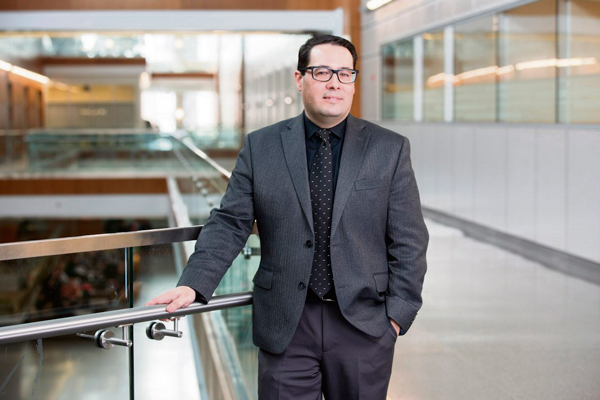
Saskatchewan universities are joining forces to fill current COVID-19 therapeutic and diagnostic gaps.
The University of Regina (U of R) is leading the broader project to fill these gaps. The University of Saskatchewan (USask) is working with them specifically to develop a swift, less invasive test for the virus.
Researchers at both institutions hope to accomplish this with federal funding through the Canadian Institutes of Health Research (CIHR).
Mohan Babu, a U of R biochemistry associate professor, has received $937,950.
According to a news release, Babu’s project addresses the lack of licensed vaccines and effective therapies for COVID-19. Along with this is a scarcity in reliable diagnostics, especially when testing patients who have mild symptoms or no symptoms.
Darryl Falzarano, a researcher at the Vaccine and Infectious Disease Organization – International Vaccine Centre (VIDO-InterVac) in Saskatoon, is also working on this part of the study.
“We are also studying how SARS-CoV-2 (the virus responsible for the COVID-19 outbreak) hijacks host proteins during infection, with the goal of developing antiviral peptides to block the virus from entering or replicating the human cells,” added Babu.
USask is one of six institutions across Canada joining Babu on the project.
Walter Siqueira of the USask College of Dentistry will lead the development of a new COVID-19 test, which will detect SARS-CoV-2 proteins in saliva.
In collaboration with Jun Yang at Western University, the research team will develop a prototype testing device that is roughly the size of a cellphone.
The device will be similar to a pregnancy test—an indicator turns a certain colour when the virus biomarker combines with SARS-CoV-2 antibodies, indicating the presence of the virus in the saliva.
“We expect that the accuracy of this test will be high because the peptide/proteins we are using is a marker for a specific SARS-CoV-2 antibody, whereas other tests often aren’t that specific,” said Siqueira.
“As well, other saliva-based tests are based on RNA (which synthesizes proteins), but this test is based on proteins themselves, and since proteins last longer in the saliva than RNA, the virus is more detectable.”
The test will take less than five minutes to produce a result. It can also be conducted at home, which is ideal for patients in remote locations who don’t have quick access to a medical facility.
Siqueira also anticipates the test to be more accurate in diagnosing patients with mild or no symptoms. This is “a shortfall of some existing tests,” said the release.
He has secured partnerships with the Saskatchewan Health Authority and the Royal University Hospital in Saskatoon for saliva samples.
Siqueira said the new test will likely be a low-cost alternative to current methods and could be available by March of 2021.
“This could be powerful because we can use the tool in long-term care homes, remote locations, hospitals, and clinical centres, and to detect COVID-19 patients in low- and middle-income countries,” added Babu.
Babu’s team also includes researchers from Carleton University, the University of Toronto, the Public Health Agency of Canada, the University of Manitoba and Western University.
Separate USask COVID-19 project to examine incidence rate in dentists
In a second project, Siqueira is working with two researchers from McGill University to determine a COVID-19 incidence rate in dentists.
“The close contact between dentists and patients, along with the use of aerosol-generating procedures, makes dental offices a potential high-risk environment for the COVID-19 transmission,” said Siqueira.
“Now that dental offices are beginning to reopen, they are implementing infection control, treatment protocols and other procedures, but there is minimal scientific evidence to support these measures.”
Siqueira, along with McGill’s Sreenath Madathil and Paul Allison, will be collecting saliva samples from 220 dentists across Canada every four weeks for a period of one year. They’ll also be distributing questionnaires.
The data will give researchers a clearer picture of what personal protective equipment should be used in dental offices, as well as which infection control measures should be kept in place.
CIHR has announced funding for 139 projects across the country, totalling $109 million, under their COVID-19 May 2020 Rapid Research Funding Opportunity.

